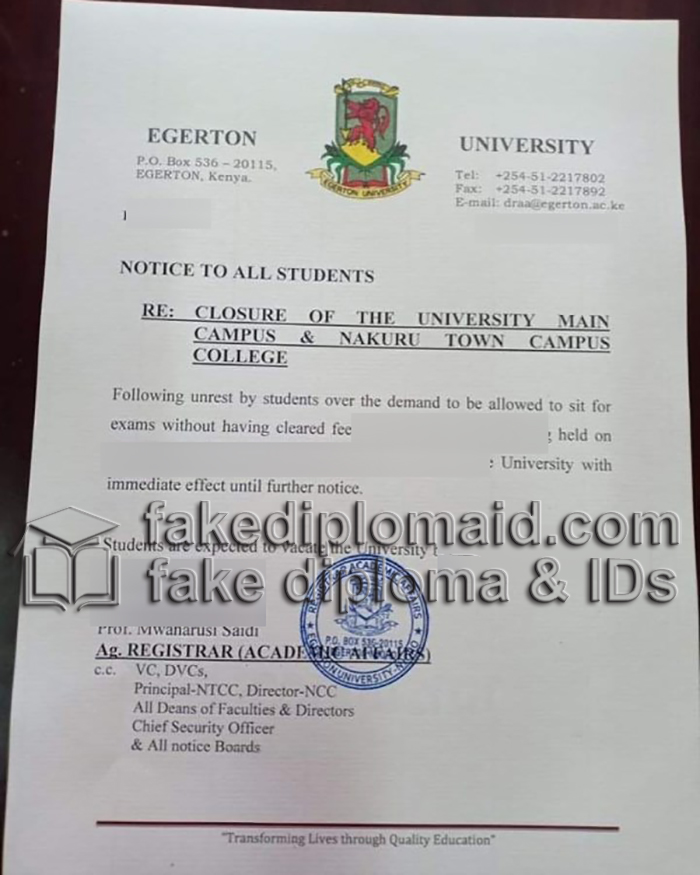
What about make your Egerton Uni degree cert? Buying Egerton Uni academic transcript. Founded in 1987, Egerton University is a non-profit public higher education institution located on the outskirts of Njoro, a small town in Nakuru (population less than 2,500 people). The college also has branch campuses in the following locations: Laikipia, Kisi, Nakuru town. Egerton University (EU) is a large co-educational (uniron enrollment range: 10,000-14,999 students) higher education institution officially accredited by the University Education Commission of Kenya. Egerton University (EU) offers courses and programs leading to officially recognized higher education degrees such as pre-bachelor’s degrees (i.e., certificates, diplomas, associate degrees or foundations), bachelor’s degrees, master’s degrees, doctorate degrees in several fields of study. See the UniBank Degree Level and Area of Study matrix below for more details. This 33-year-old Kenyan higher education institution has a selective admissions policy This higher education institution has an open admissions policy. EU also provides a number of academic and non-academic facilities and services to students, including libraries, sports facilities, study abroad and exchange programs, online courses and distance learning opportunities, and administrative services.
Would you please tell me where to get an Egerton Uni diploma supplement? buy kenya Uni degree and student records. The school was founded in 1939 and was originally named Egerton Farm School. It was established by a large land grant of 740 acres (3 km²) by Maurice Egerton, 4th Baron Egerton of Taton. The school’s original purpose was to prepare white European youth for careers in agriculture. By 1955, the name had changed to Egerton Agricultural College. A one-year certificate course and a two-year diploma course in agriculture were offered. In 1958, Lord Egerton donated another 1,100 acres (4.5 km2) of land. Soon afterwards, the college opened its doors to people of all races from Kenya and other African countries. In 1979, with support from the Government of Kenya and USAID, the college expanded yet again, becoming part of the University of Nairobi system. In 1987, the college was recognized as a chartered public university.





